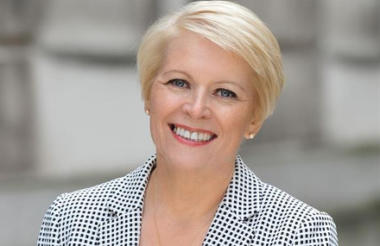The outgoing chief executive of RNIB has called for the Charity Commission to stop scaring people off from becoming trustees, and said the sector should rise up and force legislators to reform it.
Lesley-Anne Alexander, chief executive of RNIB, was speaking at a panel discussion hosted by Bates Wells Braithwaite yesterday.
“Am I the only one feeling quite despondent?” she asked the audience. “Who would be a trustee with all this talk of weaponising the sector’s regulator?”
She is due to leave RNIB at the end of this month and said that having just become a trustee of the Microloan Foundation she was feeling “quite excited” until she read the guidance.
She said that “we as a sector have missed a trick” by not being more vocal when the Charities Act was introduced.
“Why as a sector didn’t we rise up,” she added, “and force people making legislation to listen and say that we want a Charity Commission that is modern and innovative?”
Commission is ‘scary’
She also complained that the Charity Commission only seems to talk about the “stuff that goes wrong”.
Alexander suggested the Commission was “scaring” trustees with “regulation that can be launched in your direction”.
She urged the sector to “start promoting what a fantastic opportunity” being a trustee is, adding that she had just spent the day with RNIB’s trustees who were passionate about it because “we have been changing the world”.
To attract more younger trustees, she said, "we need to do things differently".
Commission’s approach has changed
Rosamund McCarthy, partner at BWB, said that: “I think that fundamentally – legally – the duties of trustees haven’t changed. But I think the Charity Commission's attitude and approach has.”
She warned that this could deter people from wanting to become trustees.
“There isn’t an inexhaustible supply of volunteers with time to run charities – nobody needs to be a trustee to put food on the table,” she said. “We have got to keep trustees on board.”
McCarthy called on the Charity Commission to do more to voice support for charities involved in controversial, but legal, activities like campaigning. She mooted the idea of an institute of trustees to provide a voice for trustees when issues arise.
However, she added there were some positives for the Commission and that its online registration system was a “great success”.
'You have to trust us'
Kenneth Dibble, head of legal services at the Charity Commission, said that when it came to concerns in the sector about how it will use its new regulatory powers, it was hard to get the guidance to please everyone.
People will have to “put some trust in the Commission that it will get it right and won’t go off the rails”, he said.
He said that trustee duties hadn't changed fundamentally but were “accentuated”, and that the Commission was “clearer in its articulation of trustees’ responsibilities”.
Dibble also warned that media scrutiny was unlikely to go away.
“Media is clearly out of sympathy with charities – that is going to continue. There are possibly some more bad stories to come this year,” he said.
Organisations under the radar
Karl Wilding, director of public policy and volunteering at NCVO said that there were still many smaller organisations that are unaware of their duties.
“The bigger problem is not big charities,” he said, “it is that long tail of smaller organisations under the radar that will never come to this event and probably don’t know what their duties are.”
He said that at larger charities trustees were now “asking senior management teams quite pointed questions”.









